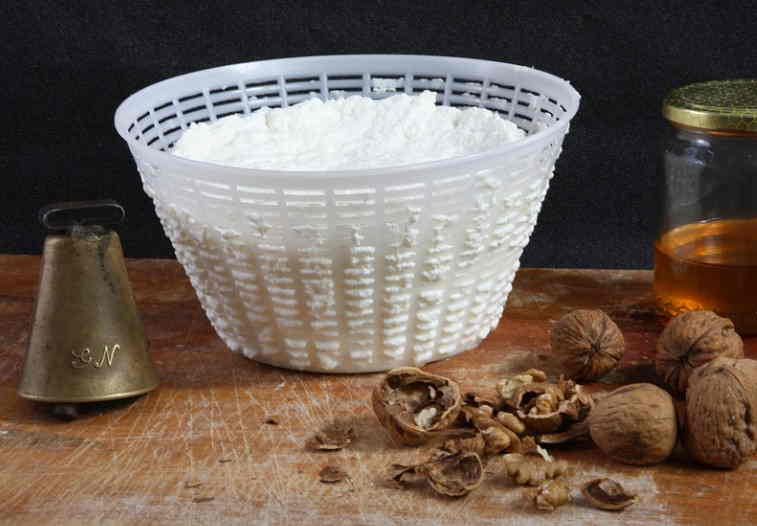Can You Freeze Ricotta Cheese?

Can You Freeze Ricotta Cheese
Both ricotta and feta cheese are widely-loved and sought after. The former, for its soft and texture with a mild and sweet flavor, and the latter for its tangy, salty, and crumbly traits.
However, as much as our fondness for these two dairy wonders allow, we can only ever eat so much in one sitting.
So what if you find yourself with several servings of ricotta or feta cheese left? How do you store them and extend their shelf life?
Can you freeze ricotta cheese and feta cheese? Also, we’ll this process affect their taste? We’ll consider these concerns and more in this article!
Can You Freeze Ricotta Cheese?
To allay any worries you may have of wasting perfectly good cheese; we’ll get straight into it. So, can you freeze ricotta and feta cheese to extend their shelf life?
The answer is, “Yes, you can!” Keeping your ricotta or your feta in the freezer is a good way to keep these cheese far longer than just chilling them in the fridge.
But wait! Before you start making room in your freezer for your blocks of feta and bags of ricotta, you’ll need to look into some considerations.
These factors include the effects of freezing ricotta and feta cheese, the proper way to freeze and store them, and lastly, how can you thaw them for optimal flavor.
Freezing Ricotta and Feta Cheese

Effects on Ricotta
Ricotta has a short shelf life, so freezing is a wise option. However, probably the biggest concern that you may have with freezing your cheese is if it will still taste the same.
Also, a concern is the effects of freezing on ricotta’s texture especially if you plan to use the cheese as an ingredient.
Fortunately, freezing ricotta cheese shouldn’t change its profile. However, you should know that freezing will change ricotta’s texture. This change is due to the separation of fat during the freezing process.
So, despite keeping its flavor, thawing once-frozen ricotta cheese will permanently change how it looks and how it holds itself together. Typically, ricotta becomes more watery and lumpy after you take it out of the freezer.
Effects on Feta
Unlike Ricotta, Feta can keep for around three months in the fridge, as long as you store in its brine. Also, maintaining the feta in the refrigerator will preserve its original flavor.
However, if you do need to freeze feta so you can keep it longer, then know that freezing will affect both feta’s texture and flavor. You’ll notice a decrease in the cheese’s tangy, creamy, and salty flavor as well as a damper texture.
Although you may try to remedy this change after thawing feta, the overall state of the cheese will not be the same as fresh or chilled feta.
Storage Techniques
Freezing feta or ricotta in the packaging, they came in will usually be fine. However, to avoid any contamination, potential flavor loss, or freezer burn, you would be wise to use an airtight container for your ricotta.
An alternative to airtight containers is freezer bags as well as vacuum-sealed bags.
Before you place the cheese in the containers or freezer bags though, make sure you’ve thoroughly drained and dried the cheese. Properly drying cheese also means squeezing out most of its juices into a paper towel.
Afterward, you may use parchment paper or plastic wrap to cover the surface of the cheese. Then, if you’re using a freezer bag, make sure to squeeze out as much air as possible.
Once you’ve properly wrapped and contained the cheese, it should keep for two to three months in the freezer.
Thawing Ricotta And Feta
Once you’re ready for some ricotta or feta, it’s time to thaw your frozen stores.
First of all, never let cheese thaw on a kitchen counter. This method could expose the cheese to harmful bacteria and contamination. Conversely, you can let the cheese thaw in the fridge instead.
Hence, you may need to factor in the thawing time when you plan to use the ricotta. Usually, thawing in the refrigerator may take around 10 to 12 hours.
Second, once you’ve thoroughly thawed the cheese, you may choose to remedy their loss of flavor. For ricotta, you could try stirring or whisking. This method may address the uneven texture and return it somewhat to its original texture.
For feta, placing it in salt water for an hour or two can fix its flavor lose. Additionally, you can add to the feta a splash of olive oil.
Third, don’t refreeze the cheese. So, if you will only need small batches periodically, then you should freeze them in several containers for easy access when you’re in need of some cheese.
Conclusion
Hopefully, we’ve alleviated some of your worries when it comes to freezing ricotta and feta cheese. Just remember to follow the freezing, storing, and thawing techniques that we’ve outlined above, and you’ll be able to enjoy your cheese for much longer!






